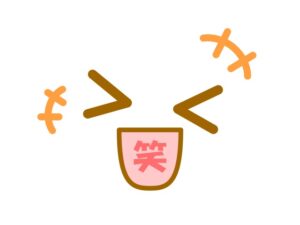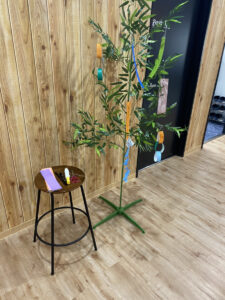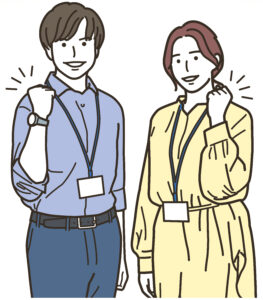What I, an Indian, felt after working at a Japanese company (Beyond Inc.)

table of contents
> Self-introduction
My name is "P", and I'm an Indian who loves Japan.
I work in Japan as an engineer in the System Solutions Department.
My motto is "Never Give Up (Try Your Best)" and
I like to eat sushi and ramen.
My favorite anime is One Piece.
I can speak Japanese (Kansai dialect), English, and Hindi.
*Please note that this is only my personal impression of Japan
Last time, why I, an Indian, came to Japan (and why foreigners are fascinated by Japan) , but this time I'd like to write about my impressions after actually working here!
I studied at a technical college for two years, where I learned about development (Web Applications), but after joining Beyond, I learned about infrastructure construction and application development, and was assigned to the SS Department (System Solutions Department). I had the opportunity to learn new things, which was really fun
At Beyond, I underwent various training sessions from April to December (8 months), from Phase 1 to Phase 5, and learned a lot about new employees and IT-related topics
Training period after joining the company
To give a rough explanation, it is as follows
Phase 1
→ Basics of working life
→ New employee training
※ A period to change your mindset as a working member of society → A period to learn about the company
Phase 2
There is an opportunity to learn basic technical content
from the server-side training in the System Solutions Department
→ Practical Operation Training → AWS
→ Linux.
Finally, there is a role-playing presentation using what you learned in Phase 2, covering everything from receiving requests from a senior colleague acting as a customer to delivering the product, and then a final presentation.
* Personally, I found this very enjoyable.
* You can receive training that allows you to learn about IT while having fun.
Phase 3
→ Basic development training
→ Create a web application using what you learned in one month
※ Development basics and system development department training
→ Front-end (HTML, CSS, JavaScript)
→ Back-end (PHP, MySQL, Laravel)
Phase 4
Learn about the work of senior employees in the Development Department and System Solutions Department by actually teaching them their work
Phase 5
This is the OJT (On-the-job Training) period. OJT means that you will start working from Phase 5 and work alongside your senior colleagues. Your senior OJT (person in charge) will work with you on your daily tasks.
At first, there will be many things you don't understand or have trouble with, but you will learn the job by asking your senior OJT (person in charge), so you will be able to work without stress.
In particular, if my Japanese expression was incorrect, my seniors would give me advice like, "How about changing it to something like this?" At first, there were many things I didn't understand, but by asking questions to my seniors during OJT, I was able to carry out my work with peace of mind
My impression after actually working at a Japanese company was that it was easier to work there than I had expected .
I work every day to ensure that there are no problems with our customers' servers or content display, but there are still many things I don't understand. Therefore, when there is a problem with a customer's server, my seniors help me with the problem and I learn as I go
I often get support when I'm in trouble, but thanks to the support of my seniors, I'm able to get my work done smoothly
What I found difficult about working at a Japanese company (Beyond)
1. All work is done in Japanese, so it takes time to understand

Ⓠ. I think honorific language is particularly difficult in Japanese. Here's why:
- Complex grammar and rules: Honorific language involves complex grammar and rules
- Selecting the right target: It is necessary to choose the right honorific depending on the person and the situation, and choosing the wrong one may lead to misunderstandings
- Communication effect: It is a means of showing appropriate respect, but it is difficult to use appropriately in the right situation
- Understanding the context: In order to use honorific language, you need to accurately understand the context and the other person's position
- Practice and experience: Mastering honorific language takes time and practice, and when learning in a foreign language, cultural considerations are also important
Ⓠ. Why do we need to use honorific language?
- You can check the hierarchical relationship
- It helps maintain the speaker's dignity
- You can show respect for others
- You can improve your relationship with each other
Ⓠ. When should I use honorific language?
- Is it work or personal?
- Is the relationship close, or is it a first meeting or is there some distance?
- Are the prices of the services and stores reasonable or high-end?
- Does the other person want a frank or polite relationship?
The way you speak can vary greatly depending on the situation, and the proportion of honorific language you use can also change, so if you do not speak honorifically, you may come across as rude
2. The nuances of Japanese are difficult

The nuances of Japanese language can sometimes be difficult to understand, as the meanings learned in textbooks can often differ from the meanings actually used by Japanese people in their daily lives. These differences relate to the use of words and phrases, connotations, and context-dependent expressions
For example, the words and expressions written in Japanese textbooks are common and basic, and have precise meanings. However, when Japanese people use them in everyday conversation or communication, the meaning and usage of words can change subtly depending on the context and the person they are speaking to. Context-dependent expressions and non-verbal communication are also very important
Due to these differences, foreigners learning Japanese may sometimes have difficulty accurately understanding the meaning of Japanese when speaking with customers or in actual communication. To solve this problem, it is important to gain actual communication experience and learn the usage and nuances of words through dialogue with Japanese people. Also, asking questions without hesitation is one way to help you understand Japanese
3. Work Style
In Japan, it is very important to arrive at work on time and to be punctual

Working styles are a little different from overseas. There is no discomfort in arriving at work late, and family matters (especially child matters) often take priority. For example, if your child has a fever and you have to take a day off suddenly, you may have to take them to the hospital before coming to work, or you may be feeling a little unwell and arrive late to work. It is common for people to be late
Also, overseas, there is an image that Japanese companies make it difficult to take vacation time and have a lot of overtime, but that's not the case. You can take paid vacation when you want to take time off, and generally there is little overtime unless there is urgent work, so you can work with peace of mind
What I found great and good about working at a Japanese company
① You will have the opportunity to learn more about Japanese culture
I love Japan and am very interested in Japanese culture. I will have the opportunity to work for a Japanese company and learn a lot of things. The company holds a variety of cultural events, which give me the opportunity to learn about Japanese culture. I can learn about Japanese culture while enjoying many events such as cherry blossom viewing and Tanabata.

② You can learn from zero knowledge at Japanese companies
In many cases, companies overseas will not hire you if you do not have knowledge of the job, and you will often be asked questions about the job or take tests during the interview
However, in Japanese companies, you can work even if you have little knowledge

3. You can join the company with zero knowledge and learn during the training period
I thought it was great that I could learn while receiving a salary. In many overseas companies, employees are not paid during their training period
Additionally, if overseas companies find that your skills or abilities are insufficient during your training period, you run the risk of being laid off

④ Dress code is optional
Since it is an IT company where you can come to work in casual clothes, there is no need to wear a suit. You can come to work in casual clothes and work without stress. (Of course, you are expected to dress appropriately for the time, place, and occasion.)
Personally, I don't really like working in a suit, so I'm very happy to be able to work without stress
5. You can enjoy food and drinks whenever you want while working
You can work while enjoying your favorite food and drinks at any time during the day
⑥ You can come to work with your favorite hairstyle
Engineers can generally work with any hair color and hairstyle they like, so they can enjoy both their personal and professional lives. They can work stress-free and have fun
⑦ Flextime system at Beyond
Beyond has implemented a flextime system, so as long as you come to work between 9:00 AM and 12:00 PM, you're fine. We also offer remote work and other options to work in an environment that's convenient for each employee
Currently, most employees work a hybrid of coming to the office and working remotely

 13
13






